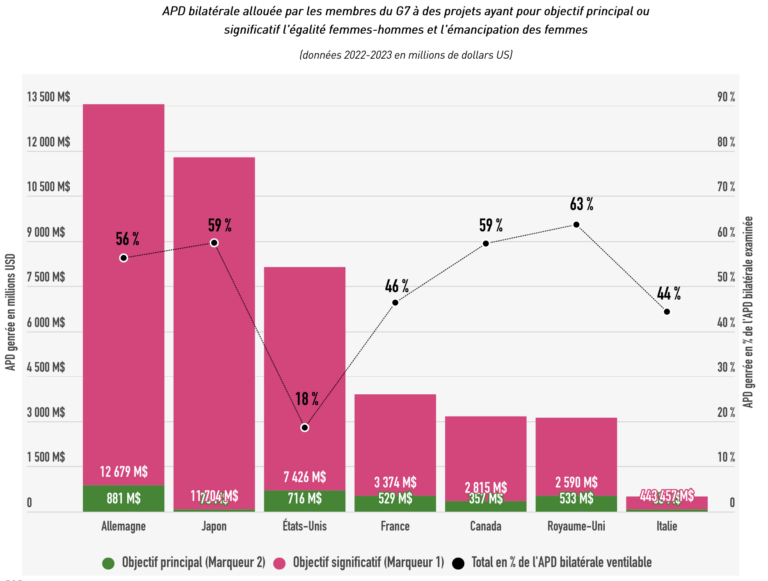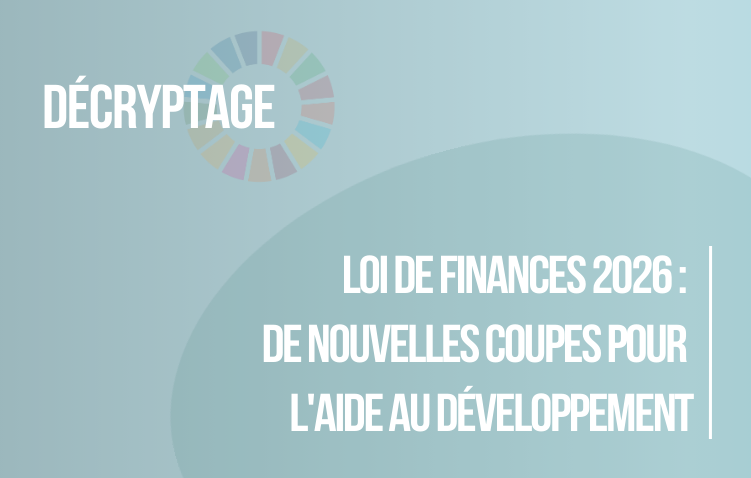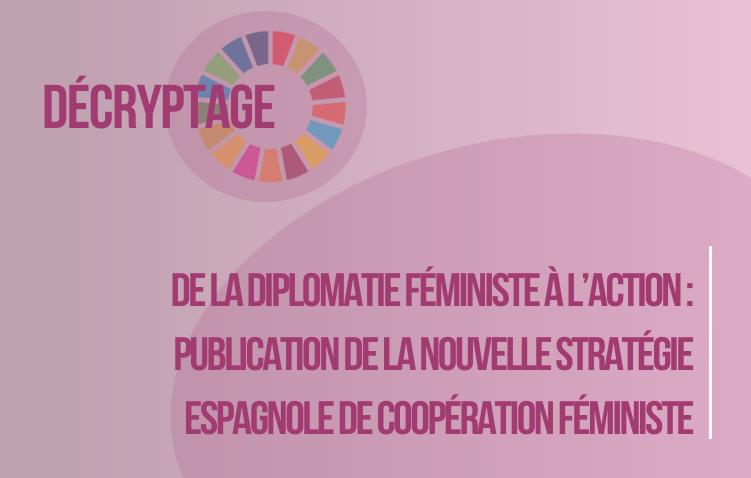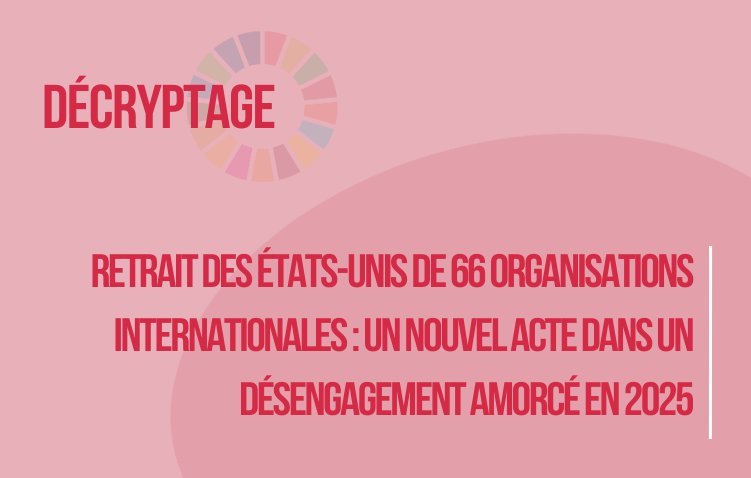Three questions to Maguette Beye, Program Director, Helen Keller Intl
Publié le 21/03/2025.
| The next edition of the Nutrition for Growth Summit, organized by France on March 27 and 28, 2025 in Paris, represents a unique opportunity to engage the international community in a more effective fight against malnutrition. Ahead of this international summit, Focus 2030 is dedicating a special edition to the global challenges of (mal)nutrition, highlighting the views and expectations of organizations, personalities and experts working in the field of nutrition. |
Three questions to Maguette Beye, Program director, Helen Keller Intl
Focus 2030 : Helen Keller International works in some twenty countries around the world to fight malnutrition. You are in charge of the nutrition program in Senegal. What are the main nutritional challenges facing the country today?
Maguette Beye : Senegal has made significant progress in the fight against malnutrition, thanks to the development of a nutrition policy, notably through the Plan Stratégique Multisectoriel de la Nutrition (PSMN) and the establishment of the Conseil National de Développement de la Nutrition (CNDN), making nutrition a national priority. However, despite these advances, the country still faces a number of nutritional challenges, exacerbated by geographical and socio-economic disparities.
One of the main nutritional challenges is child malnutrition, particularly stunting, which affects around 18% of under-five children nationwide. However, this rate conceals significant regional inequalities. For example, the regions of Kaffrine (28.4%), Matam (25.3%), Sédhiou (24.5%) and Tambacounda (23.5%) record rates above the acceptable threshold of 20%.
Acute malnutrition is also a major challenge in Senegal, affecting 10% of children under five nationwide. However, some regions face much higher rates, above the critical threshold of 15%, such as Matam (22.2%), Tambacounda (17.8%) and Diourbel (17.1%, 2023 Demographic and Health Survey). This acute malnutrition is largely due to food insecurity, as well as a lack of appropriate feeding practices and quality essential childcare.
Another major aspect in the fight against acute malnutrition in Senegal is the insufficient coverage of nutrition interventions.
Although policies have been put in place and programs developed, their scope remains limited due to the poor coverage of nutrition services in many regions.
Interventions such as screening for acute malnutrition and treatment of malnourished children do not always reach hard-to-reach areas, due to distance, lack of human resources, insufficient nutritional products (RUTF) and inadequate logistics.
In addition, there are missed opportunities for health workers and community actors to deliver essential nutritional services. Community workers, often on the front line, do not always have the necessary skills or sufficient motivation to properly deliver nutrition services. This situation leads to a deficit in nutritional care for children and pregnant and breastfeeding women, increasing the risk of malnutrition and deficiencies in these populations.
In addition to acute malnutrition and stunted growth in children, micronutrient deficiencies and undernutrition in pregnant women remain major concerns. Micronutrient deficiencies, particularly in vitamin A, iron, folic acid and zinc, seriously affect the health of vulnerable populations. Anemia, for example, affects a large percentage of children and women, exacerbating the country’s nutritional challenges.
Senegal is also faced with dependence on rain-fed agriculture, exposing food production to climatic variations. Rapid urbanization and changes in eating habits, notably with the growing consumption of processed foods, are further aggravating the country’s nutritional situation. This transformation in eating habits and the vulnerability of agriculture to climate are determining factors in the persistence of malnutrition in Senegal.
Focus 2030 : How does Helen Keller International contribute to the fight against malnutrition? What are the main projects you are implementing to improve the nutritional situation of the population in Senegal?
Maguette Beye : In Senegal, Helen Keller Intl is implementing an approach based on solid evidence and strategic priorities identified in collaboration with the Ministry of Health and Social Action (MSAS). This approach is based on five key, high-impact, life-saving actions, with the aim of bringing essential nutrition services to around 1 million children under the age of five, as well as their mothers/caregivers and pregnant women in five regions.
- The first action is multiple micronutrient supplementation (MMS) for pregnant women. This intervention aims to address specific micronutrient deficiencies and reduce the risk of complications during pregnancy, prevent anemia and improve maternal and child health. This intervention is currently being introduced in Senegal.
- Promoting exclusive breastfeeding is the second priority action. Helen Keller Intl supports the promotion of exclusive breastfeeding (only 34% of mothers breastfeed exclusively in Senegal) by raising awareness among pregnant women and mothers of the benefits of breastfeeding for infant growth and development in five regions of Senegal.
- Then, we focus on optimal complementary nutrition for young children. Helen Keller Intl supports the MSAS in setting up a draft decree to regulate the promotion and marketing of foods for infants and young children. It also supports families in implementing adequate feeding practices from 6 months, encouraging the introduction of diversified, nutrient-rich complementary foods (such as infant flours with a diversity of cereals and legumes), and the distribution of SQ_LNS in vulnerable areas.
- The fourth action consists of vitamin A supplementation for children aged 6 to 59 months. This intervention aims to reduce infant and child mortality by 24%. Helen Keller Intl is supporting MSAS to strengthen the provision of vitamin A supplementation in routine services at health facility and community level to reach 80% of children.
- Finally, Helen Keller Intl implements early detection and treatment of acute malnutrition, with a focus on the community level through the PECMAS_com program. This program aims to improve the early identification of cases of acute malnutrition in children, and to ensure rapid and appropriate treatment. It works closely with health workers and community health workers to strengthen their capacity to detect and effectively treat children suffering from moderate and severe acute malnutrition (without complications), guaranteeing rigorous follow-up and appropriate medical care. 80,000 children suffering from severe acute malnutrition are targeted in this four-year program.
Through these five strategic actions, Helen Keller Intl strives to strengthen nutritional care in Senegal by supporting the MSAS, while increasing the scope and effectiveness of interventions at community and health facility level.
Helen Keller Intl also works with the CNDN in the food system, accompanying and supporting small and medium-sized enterprises (SMEs) in the production of improved supplementary foods (23 SMEs targeted), as well as strengthening the large-scale fortification of micronutrient-rich foods (oil with vitamin A and soft wheat flour with iron/folic acid) and identifying potential vehicles.
Focus 2030 : On March 27 and 28, France will host the Nutrition for Growth summit, offering a unique opportunity to advance the fight against malnutrition on a global scale. As a player in the field, what are your expectations of this event? What commitments do you feel are essential to reinforce the effectiveness of the fight against malnutrition worldwide?
Maguette Beye : First of all, one of my main expectations of this summit is that it mobilizes sustainable and sufficient funding for nutrition programs. This funding must focus not only on high-impact interventions, but also on extending nutritional services, to effectively reach the most vulnerable communities and guarantee equity.
In addition, several commitments made by Senegal are essential to reinforce the effectiveness of the fight against malnutrition. These include:
- Ensure essential nutrition coverage for at least 80% of children under 5 and pregnant/breastfeeding women. The indicator for this commitment includes the percentage of children under 5 benefiting from essential nutritional services such as screening and admission to the acute malnutrition management program. This commitment would enable Senegal to focus on the extension of nutritional services, in particular the screening and treatment of acute malnutrition. This objective is in line with Helen Keller International’s fourth action, which aims to strengthen community nutrition services by focusing on PECMAS_com.
- Improve the food environment to ensure equitable and sustainable access to healthy, diversified and nutritious diets by 2030. This commitment is based on an indicator such as the number of legislative and regulatory texts adopted to promote a healthy food environment (target of 6 texts by 2030). This action would be particularly beneficial in protecting the diets of infants and young children, and corresponds to Helen Keller Intl’s third key action, which advocates optimal complementary nutrition.
- Ensure at least 70% of the funding of nutrition action plans in relevant sectors by 2030, with an emphasis on mobilizing resources for the purchase of essential nutritional products such as RUTF, vitamin A, and other critical products. This commitment is of the utmost importance, because without available products, there can be no effective program. It is therefore essential that funding is allocated not only to the implementation of programs, but also to the supply of vital nutritional products.
These commitments are powerful levers for reinforcing the effectiveness of the fight against malnutrition and ensuring a systemic and sustainable approach. They aim to consolidate actions already in place and create an environment conducive to combating malnutrition in an inclusive and sustainable way.
NB : The opinions expressed in this interview do not necessarily reflect the positions of Focus 2030.











